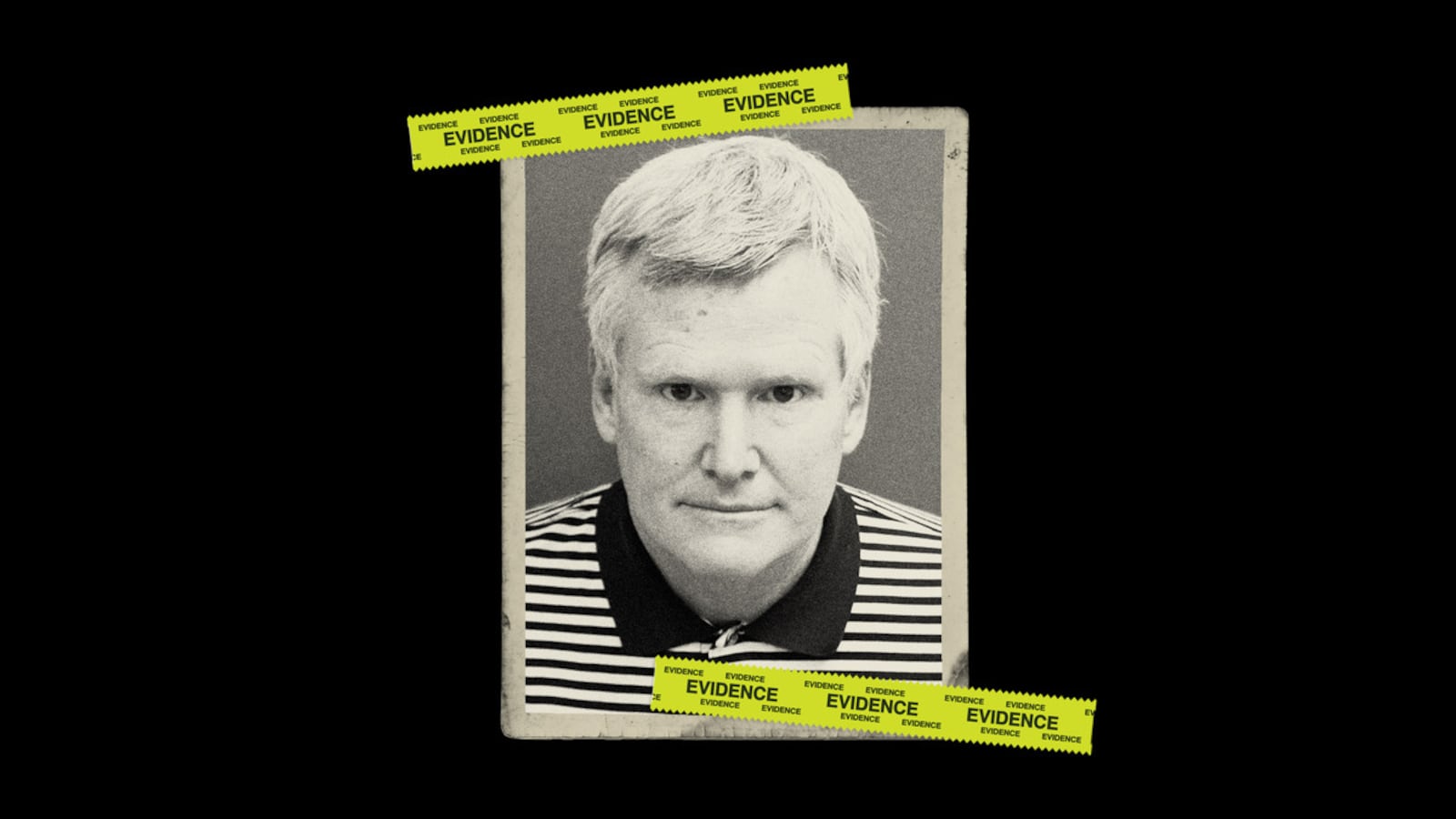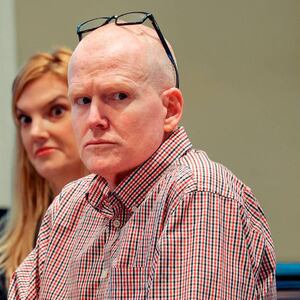After months of speculation, South Carolina prosecutors are showing how they plan to prove that Alex Murdaugh murdered his wife and one of his sons last June—a crime they say was a deliberate attempt to turn the spotlight away from his financial ruin.
Part of a motion filed Thursday by the South Carolina Attorney General’s Office doubled down on what was already known: The former attorney allegedly engaged in a 15-year scheme to swindle upwards of $8.7 million away from his clients and law firm in an attempt to keep his “fantasy persona of wealth, respectability, and prominence alive.”
But the document went on to connect the dots in a sprawling family and community murder saga for the first time.
Faced with “a perfect storm that was going to expose the real Alex Murdaugh to the world—and which would mean facing real accountability for his life,” prosecutors allege that the disgraced scion murdered his 52-year-old wife Margaret and his 22-year-old son Paul on Jun 7, 2021, to change the narrative and gain sympathy.
“Ultimately, the murders served as Murdaugh’s means to shift the focus away from himself and buy himself some additional time to try and prevent his financial crimes from being uncovered, which—if revealed—would result in personal, legal, and financial ruin for Murdaugh,” prosecutors added.
Murdaugh is set to stand trial in January after pleading not guilty to two counts of murder and two counts of possession of a weapon during the commission of a violent crime in connection with the double homicide. Murdaugh’s lawyers have steadfastly maintained his innocence, claiming that prosecutors do not have enough evidence to prove the former lawyer—who they say was with his ailing father at the time–killed his family.
Authorities say Murdaugh called the police around 10:07 p.m. the night of the murders, after he said he discovered his wife and son near the dog kennels located on their 1,770-acre Colleton County estate. In the seven-minute 911 call, Murdaugh tells a dispatcher that his “wife and child have been shot” and are not breathing.
But prosecutors allege that within 30 seconds of law enforcement descending on his estate, Murdaugh “suggested to law enforcement the killer’s motive stemmed from the February 2019 boat wreck that resulted in the tragic death of Mallory Beach.” At the time of the murders, his son Paul Murdaugh was facing trial for allegedly drunk driving the boat in an incident that resulted in the 19-year-old Beach’s death.
“In fact, Murdaugh expressed certainty and stated he knew ‘that’s what it is’ [the boat crash] to the responding officer,” prosecutors said in the motion. “Thus, based on his own statements, Murdaugh placed into motion the issue from the outset of law enforcement’s investigation into the killings, and he tried to tie the motive to events that had occurred more than two years earlier.”
Despite Murdaugh’s alleged attempt to mislead investigators, evidence they found during the murder probe shows that “Murdaugh is the only individual with a true motive to kill his wife and son.”
“As to that motive, the evidence will show Murdaugh accrued substantial debts over a period of years, and to cover those debts, began engaging in illicit financial crimes involving theft and misappropriation of money from his client and his own law firm.”
Indeed, in addition to the murder charges, Murdaugh is facing over 80 financial crime charges—as well as another set of charges for later allegedly trying to stage his own murder so his only living son, Buster, could inherit his $10 million life insurance policy.
“The evidence will further show those financial crimes were about to come to light at the time of the killings,” the motion states.
Murdaugh had been successful—and came from a prominent legal family in the South Carolina Lowcountry. But prosecutors say “a series of bad land deals exacerbated by the recession permanently changed his finances.” To maintain appearances, prosecutors allege, Murdaugh began to steal money through four main schemes: billing personal expenses to clients through his law firm accounts; stealing from his own family and firm; using associates to convert checks; and using a secret bank account to swindle funds.
“All of those millions of dollars coming to [Murdaugh]—from legitimate income to stolen client funds to large loans and credit cards—still was not enough to stop the incessant financial rollercoaster on which [he] put himself,” prosecutors said.
Specifically, prosecutors say the probe of his son’s boat crash threatened to expose his crimes, noting that a motion for Murdaugh’s personal financial records was pending in civil litigation over the crash.
“If granted as expected, that motion would have resulted in the exposure of Murdaugh’s financial records, which would itself have led to his misdeeds becoming known to others,” the motion states.
Prosecutors say that by the time of the murders, Murdaugh’s “finances were falling apart,” and that on the day of the shootings, he was confronted by a law-firm colleague about missing funds. That same day, he “received word that his father had been taken to the hospital with a very poor prognosis,” prosecutors continued, claiming that Murdaugh’s father had loaned him money and cosigned his loans.
Murdaugh allegedly murdered his family that evening—immediately spurring sympathy from the community “as the victim of an unspeakable tragedy.”
“Everyone backed off their inquiries and rallied around him,” prosecutors say. “The day of reckoning vanished.”
That didn’t last long. Just months later, Murdaugh allegedly attempted to stage his own murder after questions began to mount about the missing money. Shortly after a bizarre shooting involving a distant cousin, things again began to unravel amid questions over the extent of Murdaugh’s injuries and conflicting stories.
“People initially rallied to his aid again,” prosecutors said. “Only this time, the facts came to light a lot quicker.”







